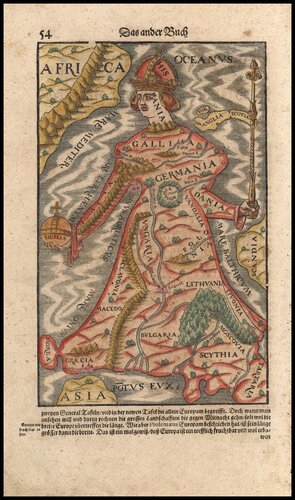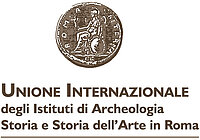IMPERIALITER. Government and the glory of the Empire regarding the Christian kingdoms – 12th-17th centuries
- Sections: Middle Ages and Modern and Contemporary periods
- Directors: Annick Peters-Custot, Professor of Universities, University of Nantes; Fulvio Delle Donne, professore Associato, University of Basilicata; Bernardo J. García García, Professor, Universidad Complutense de Madrid/Casa de Velázquez; Yann Lignereux, Professor of Universities, University of Nantes; Francesco Panarelli, professore Ordinario, University of Basilicata; Corinne Leveleux-Texeira, University professor, University of Orléans; and Benoît Grévin, CNRS/EHESS, CRH.
- Réseau des EFE : in collaboration with Casa de Velázquez
Presentation
The history of the Empires is currently very popular within a new field of research, “imperialology”. The question of “imperiality”, that is to say the Empire as a horizon of possibilities, has never been fully researched. However, as recent studies have shown, the success of imperial ideology is also measured by its mark in non-imperial monarchies (France, Sicily, England, Castile, Papal States, etc.). The Imperialiter programme therefore aims to carry out an exhaustive study of Christian “pseudo-empires” in the Middle Ages and modern times.
Thus, the Imperialiter programme explores all the modalities of what we have defined as “second imperiality”: that is to say the forms of Empire that have, at times, or recurrently, invested sovereigns and political constructions that did not take the name of emperors or empires, other than marginally, but which unceasingly reinterpreted what was for them Empire.
The programme is divided into several major questions: is imperiality a mobilizing slogan or a legal operator which would give birth to effective notions (sovereignty, lèse-majesté)? Does it refer to its own administrative and political system, or is it a reservoir of references, images, rituals linked to the sovereign, which any political construction can take hold of to conceal a new order beneath the garb of an old one? We will thus seek to bring to light the political creativity of medieval and modern times through the processes of adaptation of the imperial model, which enabled it to make itself compatible with both feudalism and absolute monarchy.
Partenariat
- École française de Rome
- Casa de Velázquez
- CRHIA (EA 1163)
- Università della Basilicata
- Collège de France
- UMR 8589 (LAMOP)
- UMR 8167 (Orient et Méditerranée)
- Maison française d’Oxford
- TEMOS (CNRS FRE 2015), Universités d'Angers, Bretagne Sud, Le Mans
- Laboratoire d’excellence "Religions et Sociétés dans le Monde Méditerranéen" (RESMED)
Calendar of events
Events organized as part of the programme (2017-2018)
2017
1. An international conference at the École française de Rome in Rome, from October 16 to 18, 2017, around the theme Le souverain et l’Eglise (The Sovereign and the Church). The programme can be consulted here.
2. A seminar on legal issues, which followed the symposium, and was held on October 18, at the EFR (its programme is integrated into the previous one).
3. An organizational seminar for the rest of the programme, meeting at the EFR on October 19, 2019.
2018
1. International study days at the Maison française d'Oxford, June 26-27, 2018, around the theme: Stratégies et rythmes de l’impérialité (Strategies and rhythms of imperiality). The programme can be consulted here.
2. An international conference at the Casa de Velázquez (Madrid), from October 24 to 26, 2018, around the theme: Le roi et ses langues. Communication et impérialité (The king and his languages. Communication and imperiality). The programme can be consulted here.
2019
An international conference at the Collège de France (Paris), from October 16 to 18, 2019, around the theme: L’eschatologie impériale du souverain (The imperial eschatology of the sovereign). See the programme here and the video here.
Upcoming events (2020)
2020
1. A study day at the University of Basilicata, around the theme of the constructions of legal theory (June 2020).
2. A concluding international symposium of the programme, held at the Centre for Historical Research in Versailles, around the theme: Cérémonies, rituels et iconographie : l’épiphanie impériale du souverain (Ceremonies, rituals and iconography: the imperial epiphany of the sovereign) (October 2020).
Results
The objective of this programme is to produce, at the end of 5 years of debate through colloquia and seminars, a summary the work containing all the studies. Contributions will also be recorded, and thematic packages will be published in electronic form.















